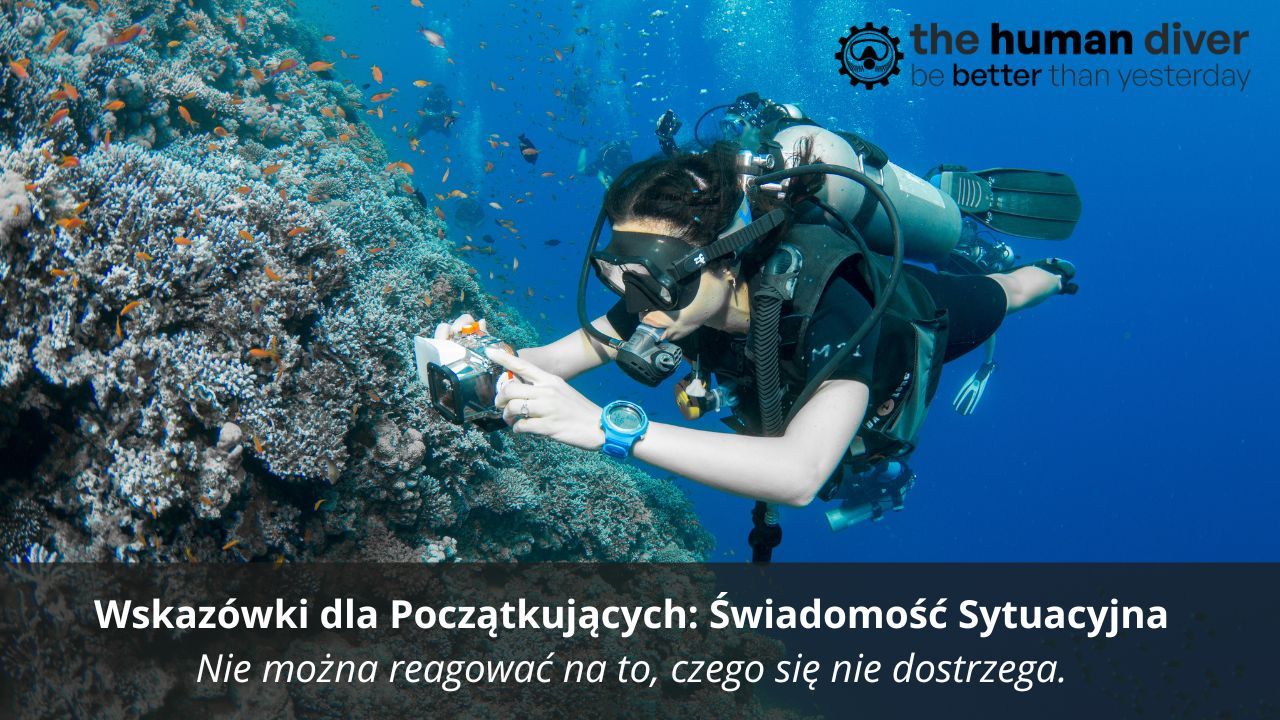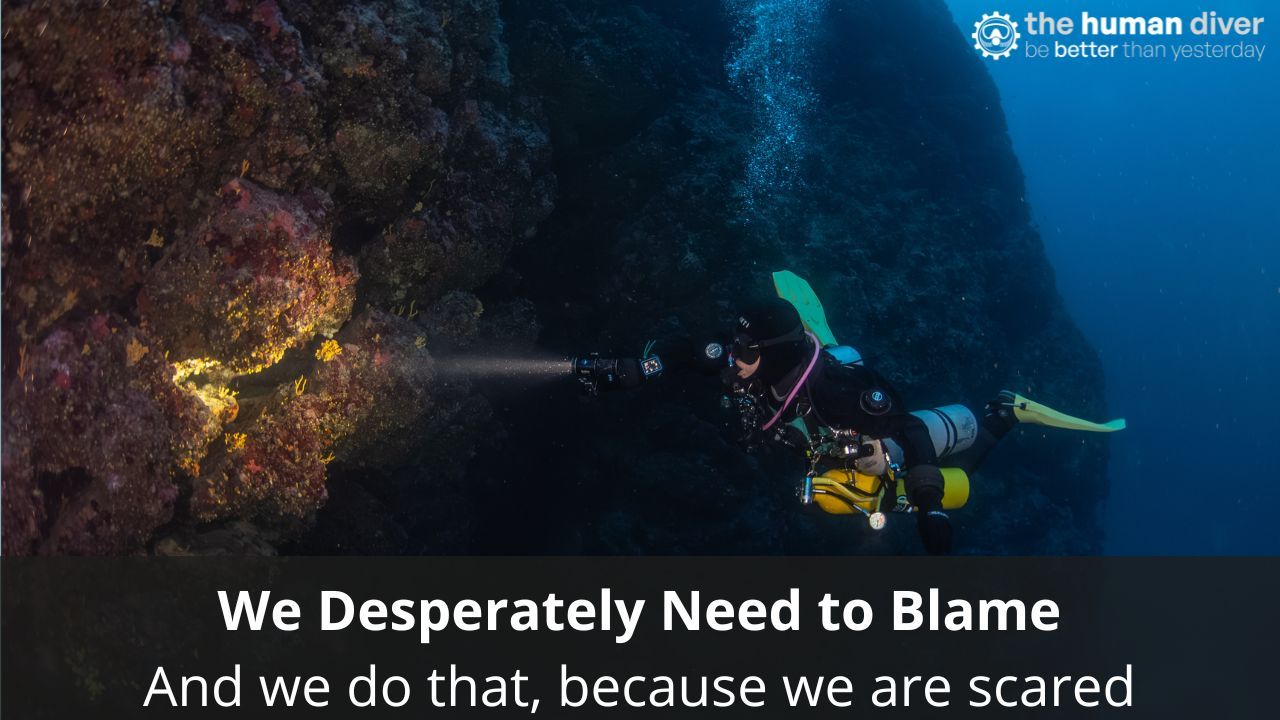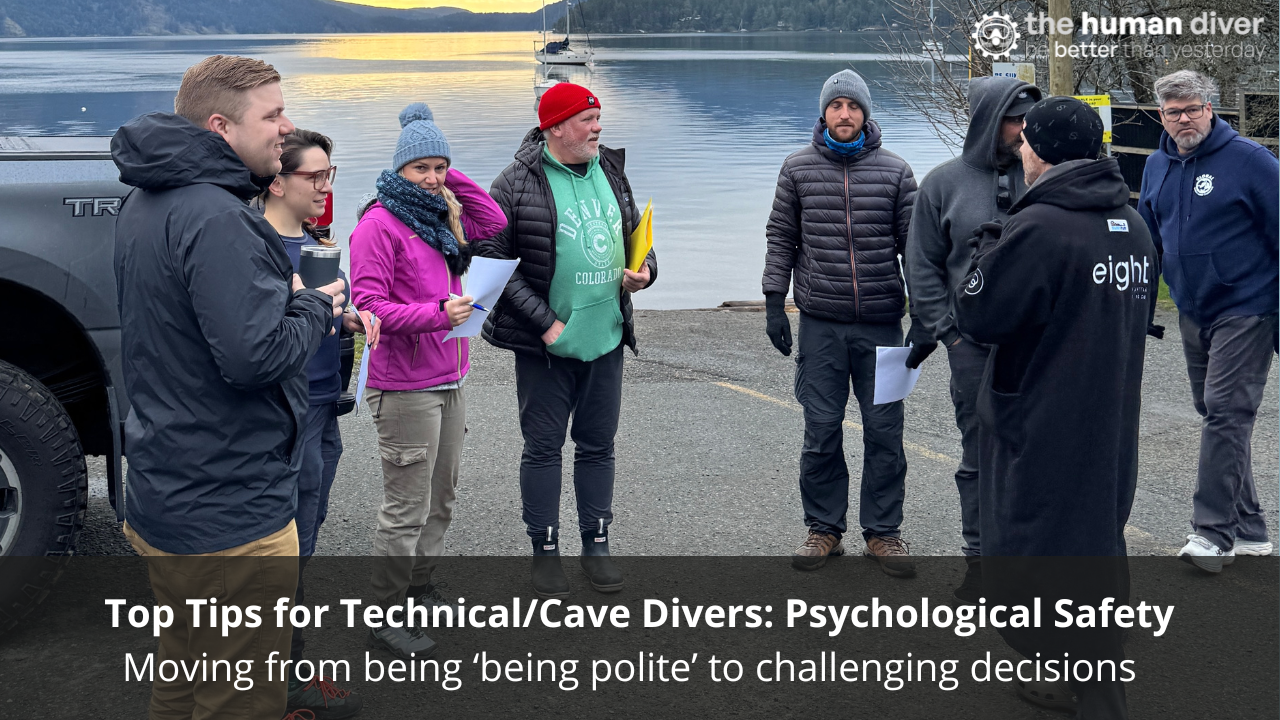
Top Tips for Beginner Divers: Performance Influencing Factors
Jul 23, 2025“I Thought I Was Ready… But I Realised I Wasn’t”
Ellie had passed her Open Water course with a Nitrox specialty two months earlier. This was her first dive trip overseas. She’d bought herself some new gear and wanted to try it out in a warm water environment on a ‘day boat’ holiday.
She was super keen. She'd checked everything the night before. Kit was sorted and packed, computer set for Nitrox 32, and her pre-trip checklist was all ticked off. She even remembered to go through her hand signals, especially some new ones relating to the wildlife she was expecting at the dive sites this week.
But the morning of the dive didn’t go as planned.

The boat was late. Then her tank had the wrong mix. Her buddy was different from who she’d been briefed about. The pace was quick, and no one seemed to notice how overwhelmed she felt. She didn’t speak up; she didn’t want to be that diver.
Twenty minutes into the dive, she realised her breathing rate was high. She’d realised that she’d forgotten to change the gases in her dive computer, and so the decompression obligation wasn’t what it was. She couldn't remember the dive plan and didn’t want to signal “problem” because it all felt ‘too small to matter’. Fifteen more minutes and the dive ended. The extra safety stop that the guide had put in provided some relief for Ellie as she wasn’t sure if her computer was within limits or not – they had only been to a maximum of 10m.
After surfacing, she said to the dive guide, “I don’t know what happened. I was ready. But I wasn’t.”
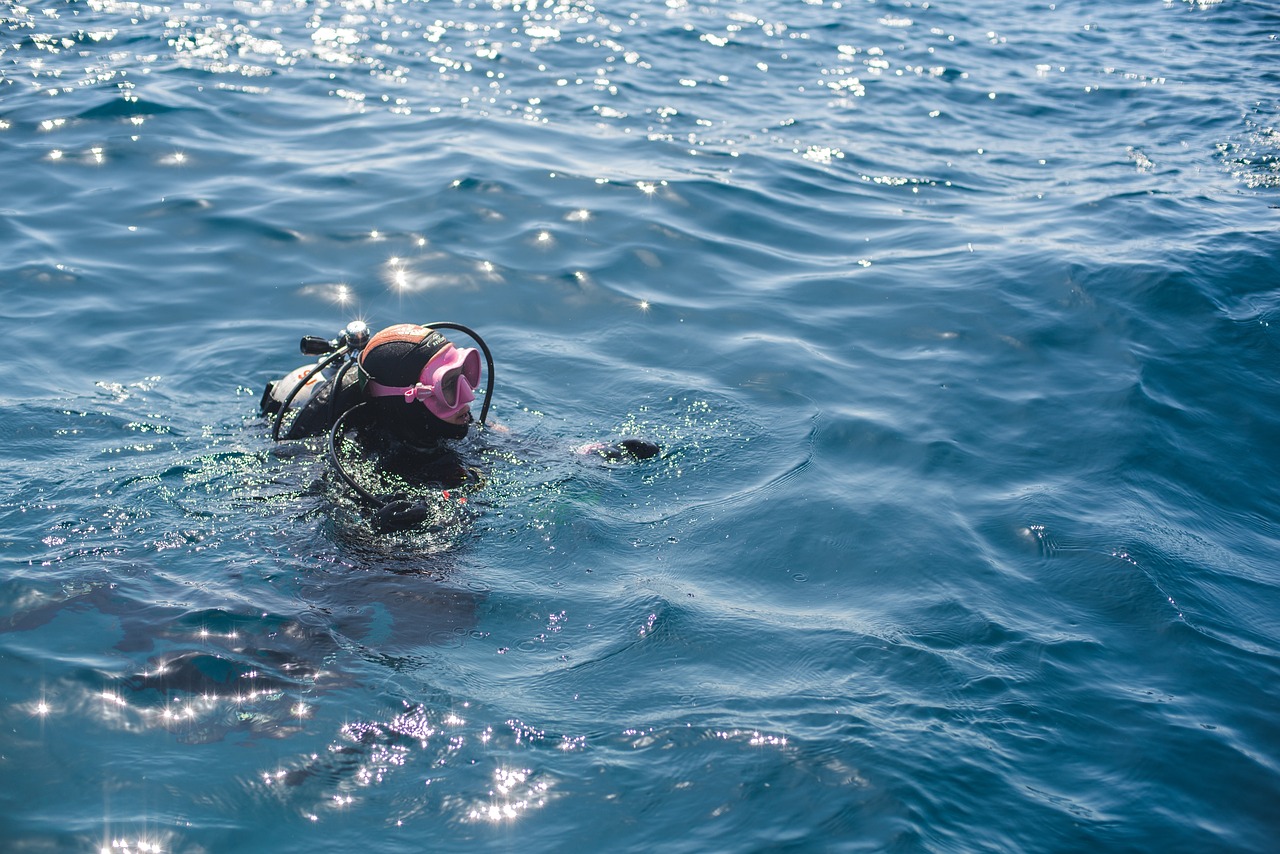 What Ellie experienced wasn’t a ‘technical skills’ issue. It was a human performance issue. She had the right knowledge, but the environment, her mindset, and the distress all combined to make simple things harder.
What Ellie experienced wasn’t a ‘technical skills’ issue. It was a human performance issue. She had the right knowledge, but the environment, her mindset, and the distress all combined to make simple things harder.
The dive didn’t go wrong, but it didn’t go right either.
What Gets in the Way of Doing The Right Thing
In high-risk industries, we use models like the WITH model (Work environment, Individual capabilities, Task demands, Human Nature) or the TWIN model (a reordered version) to explain why people don’t always perform at their best, even when they “know” what to do.
For divers, this means that just because you’ve learned a skill, it doesn’t mean you’ll be able to apply it under pressure.
Here’s how the elements break down for beginners:
- Work Environment: Boats can be noisy, chaotic, or unfamiliar. Gear may feel awkward. Things like heat, cold, or current add more physical and cognitive strain, which means that noticing ‘stuff’, processing what it means, and then projecting into the future about what might happen is much harder.
- Individual Capabilities: Beginners are, by definition, inexperienced. Lack of confidence, unfamiliar equipment, or fatigue can reduce performance, even if the skill is “known.” This is why check dives are a really useful thing to do when you arrive in a location, even if you think you know everything.
- Task Demands: New tasks take mental effort. If you're trying to remember multiple things, buoyancy, hand signals, depth, and navigation, your brain can get overloaded. As you can see in this blog, we can’t pay MORE attention, the art and skill of what to pay attention to comes through experience, identifying where we need to point our finite attention and when.
- Human Nature: We all have biases. We assume things will go fine, especially when they’ve gone right in the past. We take mental shortcuts. We don’t want to look stupid. Stress, habit, and fatigue can all cloud judgment.
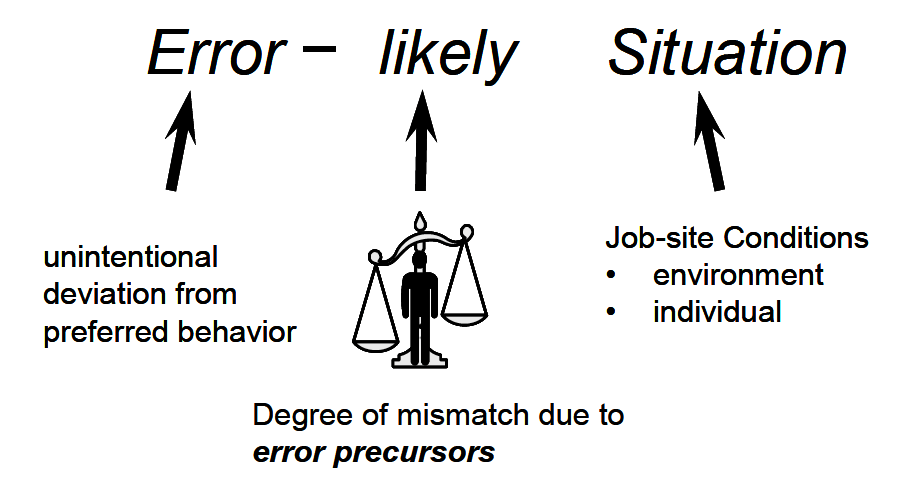
This mismatch between the demands of the moment and our ability to respond is what leads to error-likely situations. Not because we’re careless, but because we’re human.
The key isn’t to eliminate these factors. It’s to recognise them, plan for them, and build enough margin to cope when things don’t go to plan. We also need to recognise that Performance Influencing Factors also impact our performance positively, and so we should look to reinforce or strengthen those conditions that make it easier to do the right thing, and harder to do the wrong thing.

Practical Tools – Managing Your Performance Influencers
You can’t remove stress or fatigue from diving, sometimes we need eustress to increase our focus, but you can reduce their impact. Here’s how beginner divers can use the WITH/TWIN framework to be better prepared and also learn after a dive that had unexpected outcomes:
Plan for the Human, Not Just the Dive
Think about more than gas, depth, and time. Ask:
- Am I rested?
- Am I stressed about anything else?
- How familiar is this gear/environment/team?
Use a Pre-Dive Performance Check
Add a few human questions to your checks:
- Am I in the right headspace?
- Is my buddy ready and feeling confident?
- Are we rushing?
This blog provides a little more information about stress and a great little tool called the HALT moment.
Identify Error Traps Before You Splash
Look for:
- Distractions or confusion during the briefing
- “Small” issues that you’re ignoring
- Pressure to keep up or perform
When you spot these, speak up. Delay if needed. You’re not being awkward, you’re being aware. Remember, anyone can call a dive at any time, for any reason, before you even get in the water. You can use the PACE model (Probe, Alert, Challenge, Emergency) as a way of raising a concern, or maybe the SBAR model (Situation, Background, Assessment, and Recommendations).
Debrief the Human Side
After the dive, as part of your DEBRiEF, ask:
- What got in the way of good performance?
- What helped?
- What will I do differently next time?
This builds awareness, not just technical skill.
Be Kind to Yourself
Performance isn’t just about doing things right. It’s about understanding what helps you do things right. Fatigue, assumptions, and overconfidence all sneak in and reduce the likelihood that we can do the right thing.
When things go wrong, don't self-blame. Look at the conditions surrounding our decision. Don't ask 'Why did it happen that way?' , consider how it happened that way, or what failures in the system made it easier to do the 'wrong' thing? This isn't about not taking responsibility for your actions, it is about addressing factors for future dives.
Summary
Diving safely is about more than just ‘technical skills’ like using your BCD, being able to hold a neutral stop, or having fluid kicks that give you smooth and controlled propulsion; it’s about performing in the moment, under real-world conditions. For beginners, that means recognising the performance influencing factors that can shape your dive, for better or worse.
Use the WITH framework: understand the Work environment, be honest about your Individual capabilities, manage the Task, and watch out for traps in your Human nature.
Spot them early. Talk about them. Adjust your pace. And remember, be better than yesterday, one dive at a time.
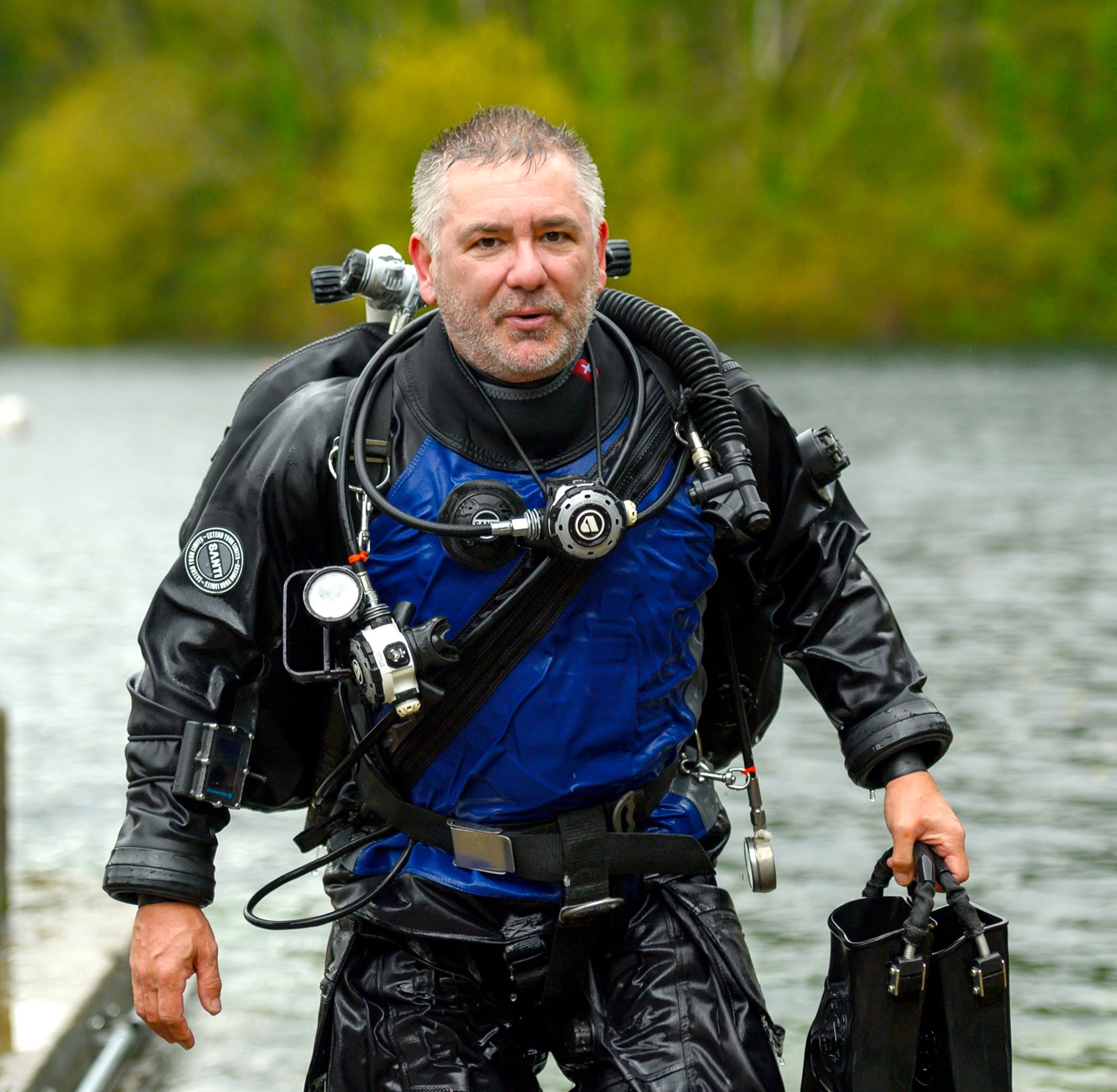
Gareth Lock is the owner of The Human Diver. Along with 12 other instructors, Gareth helps divers and teams improve safety and performance by bringing human factors and just culture into daily practice, so they can be better than yesterday. Through award-winning online and classroom-based learning programmes, we transform how people learn from mistakes, and how they lead, follow and communicate while under pressure. We’ve trained more than 600 people face-to-face and 2500+ online across the globe, and started a movement that encourages curiosity and learning, not judgment and blame.
If you'd like to deepen your diving experience, consider the first step in developing your knowledge and awareness by signing up for free for the HFiD: Essentials class and see what the topic is about. If you're curious and want to get the weekly newsletter, you can sign up here and select 'Newsletter' from the options
Want to learn more about this article or have questions? Contact us.



